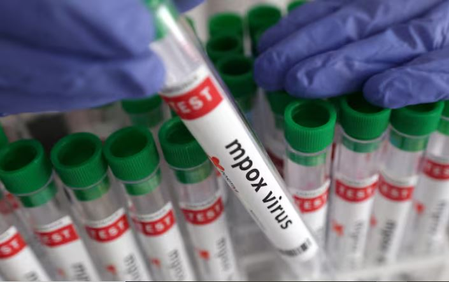
Kampala, Sep 5 (IANS) The cumulative number of confirmed mpox cases in Uganda has hit 8,001, with 50 deaths reported as the East African country registers a decline in new infections, the Ministry of Health said.
A total of 15 new infections and two deaths were recorded in the past 24 hours, the ministry said in a national situation report issued here.
The ministry noted that there has been an overall decline in the weekly incident cases, which declared a mpox outbreak in August 2024.
“For the first time since October 2024, fewer than 100 incident cases have been reported each week for six consecutive epidemiological weeks,” the report said.
To date, 120 out of the 146 districts have reported at least one case since the beginning of the outbreak and 40 districts reported new cases in the past 21 days, according to the ministry.
“Cumulatively, 50 deaths have occurred among confirmed cases, with 46 per cent of whom were coinfected with HIV,” the report said.
The health authorities continue with vaccination campaigns targeting high-risk populations, surveillance, case management, and public awareness initiatives to curb the spread of the virus, Xinhua news agency reported.
Mpox, also known as monkeypox, is a viral infectious disease that spreads through close contact. Symptoms include fever, swollen lymph nodes, sore throat, muscle aches, skin rash, and back pain.
Mpox spreads from person to person mainly through close contact with someone who has mpox, including members of a household. Close contact includes skin-to-skin and mouth-to-mouth or mouth-to-skin contact, and it can also include being face-to-face with someone who has mpox (such as talking or breathing close to one another, which can generate infectious respiratory particles).
People with multiple sexual partners are at higher risk of acquiring mpox.
People can also contract mpox from contaminated objects such as clothing or linen, through needle injuries in health care, or in community settings such as tattoo parlours.
During pregnancy or birth, the virus may be passed to the baby. Contracting mpox during pregnancy can be dangerous for the fetus or newborn infant and can lead to loss of the pregnancy, stillbirth, death of the newborn, or complications for the parent.
Animal-to-human transmission of mpox occurs from infected animals to humans from bites or scratches, or during activities such as hunting, skinning, trapping, cooking, playing with carcasses or eating animals. The animal reservoir of the monkeypox virus remains unknown and further studies are underway.
More research is needed on how mpox spreads during outbreaks in different settings and under different conditions.
–IANS
int/jk/rs




